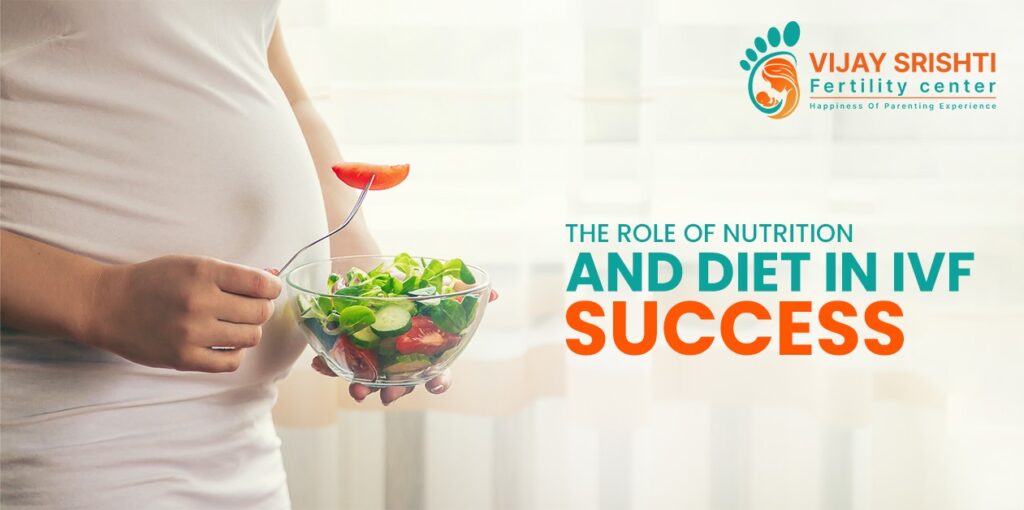
When embarking on your IVF journey, one of the most crucial factors in increasing your chances of success is your diet. A well-balanced and carefully planned diet can make a significant difference in how your body responds to fertility treatments. Whether you are just beginning your IVF process or are in the midst of it, choosing the right diet is essential for optimizing your reproductive health and overall well-being.
Why Diet Matters in IVF
Your diet directly impacts your hormone levels, egg quality, and overall reproductive function. By providing your body with the right nutrients, you can create an environment that supports conception and healthy pregnancy. A perfect IVF diet plan is not just about eating healthy; it’s about making strategic food choices that align with your fertility goals.
Key Nutrients for Your IVF Diet
- Folate-Rich Foods: Folate is essential for DNA synthesis and cell division, making it crucial for embryo development. Include leafy greens, citrus fruits, beans, and fortified cereals in your diet to ensure you get enough folate.
- Healthy Fats: Incorporating healthy fats, particularly omega-3 fatty acids, into your diet can help regulate hormones and reduce inflammation. Sources include fatty fish like salmon, walnuts, flaxseeds, and chia seeds.
- Antioxidant-Packed Foods: Antioxidants help protect eggs and sperm from oxidative stress, which can affect fertility. Add berries, nuts, seeds, and colorful vegetables to your meals for a boost of these protective compounds.
- Iron-Rich Foods: Iron supports red blood cell production and helps carry oxygen to your reproductive organs. Include lean meats, spinach, lentils, and fortified cereals to prevent iron deficiency.
- Vitamin D Sources: Vitamin D plays a role in hormone regulation and embryo implantation. Get your daily dose from sunlight, fortified dairy products, fatty fish, and egg yolks.
- Quality Protein: Protein is essential for egg development and overall reproductive health. Opt for lean meats, beans, lentils, tofu, and eggs to provide your body with high-quality protein.
- Whole Grains: Whole grains provide sustained energy and help stabilize blood sugar levels, which is important for maintaining hormone balance. Choose brown rice, quinoa, oats, and whole wheat products.
Foods to Avoid for Optimal IVF Outcomes
- Processed Foods: Processed foods are often high in unhealthy fats, sugars, and additives that can disrupt hormone balance. Avoid packaged snacks, sugary cereals, and fast food.
- Trans Fats: Trans fats contribute to inflammation and insulin resistance, both of which can negatively affect fertility. Steer clear of fried foods, baked goods, and margarine.
- Excessive Caffeine: High caffeine intake can interfere with conception. Limit your coffee, tea, and soda consumption to one or two servings per day.
- Alcohol: Alcohol can impair fertility and reduce the chances of IVF success. It’s best to avoid alcohol completely during your IVF treatment.
- High-Mercury Fish: Certain fish, like swordfish and king mackerel, contain high levels of mercury, which can be harmful to reproductive health. Instead, choose low-mercury options like salmon, sardines, and trout.
Creating a Balanced IVF Diet Plan
To create a balanced IVF diet plan, focus on incorporating a variety of nutrient-dense foods while avoiding those that can hinder your fertility. Here’s how to structure your meals:
- Breakfast: Start your day with a nutrient-rich breakfast that includes whole grains, a source of lean protein, and plenty of fruits or vegetables. For example, a bowl of oatmeal topped with berries and a side of scrambled eggs is an excellent choice.
- Lunch: Aim for a balanced lunch with lean protein, healthy fats, and fiber-rich vegetables. A grilled chicken salad with mixed greens, avocado, and a sprinkle of nuts provides a satisfying and nutrient-packed meal.
- Dinner: Focus on a dinner that includes whole grains, lean protein, and antioxidant-rich vegetables. A serving of quinoa with grilled salmon and steamed broccoli is a great option.
Snacks: Keep snacks simple and nutritious. Consider a handful of nuts, a piece of fruit, or a yogurt with a sprinkle of chia seeds to keep your energy levels steady.
Hydration and IVF
Don’t forget the importance of staying hydrated. Proper hydration supports blood circulation, nutrient delivery, and overall reproductive health. Aim for at least 8-10 glasses of water a day, and increase your intake if you are physically active or live in a hot climate.
Personalized Nutrition Support
Every individual’s nutritional needs are unique, especially when undergoing IVF. Consulting with a fertility nutritionist can help you tailor your diet to support your specific health and fertility goals. A personalized approach ensures that you’re getting the right nutrients at the right time to optimize your chances of success.
Choosing the perfect diet for your IVF plan is about more than just eating healthy; it’s about making strategic choices that align with your fertility goals. By focusing on a nutrient-dense, balanced diet and avoiding foods that can hinder your progress, you can create an optimal environment for conception and a healthy pregnancy.
Remember, your diet is a powerful tool in your IVF journey—use it wisely to nourish your body and support your path to parenthood.

